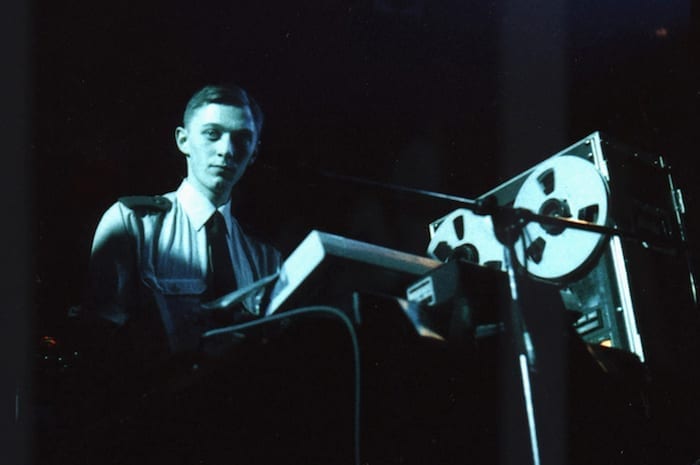

In East Germany, the church existed in passive opposition to the totalitarian state. I wanted to know where this guy played his music, and he said he played in a church at something he called a ‘blues mass’.” Anyone performing in public was vetted to assess their proficiency and political reliability. If you officially wanted to play to the public, all lyrics had to be pre-approved. Playing any music in the GDR was seen as potentially anti-state. “Under some five-year plan they were supposed to be manufactured in Czechoslovakia, but they were almost impossible to find, let alone buy. “Sometime in early 1981 I was in East Berlin and got chatting to this Jesus-looking guy in a bar who mentioned owning an electric guitar – which in the GDR were like rocking horse shit,” recalls Reeder.

“East Berlin was like the hardest club in the world to get into” Unperturbed by his first brush with them at the May Day parade, however, Reeder would make the crossing many times, heading East to discover the hidden half of Berlin’s music scene. Staffed by petty, unsmiling guards, there was always the possibility of being pulled aside and grilled by the Stasi. The border was the most tightly controlled in the world and took hours to navigate. Not that the GDR made it easy to travel to the East. With a world of adult distractions for amusement, few of those whom Reeder met in the music scene troubled themselves with what was happening over the Wall in the “other” Berlin. With its death strip, armed guards and landmines, the Wall penned in the West Berliners, but it also guaranteed their freedom. Berlin was already the semi-mythical home of David Bowie and Iggy Pop, and as a music obsessive and natural-born chancer, Reeder threw himself into the city’s nightlife, variously playing in and managing bands, representing his hometown’s Factory Records and providing voiceovers for pornographic films. The city became a haven for transient artists, freaks and draft-dodgers who squatted alongside a population of aging trümmerfrau and Turkish gastarbeiter. At the geographical centre of the Cold War, as the Soviets sought to squeeze the Western allies, so West Germany attempted to shore up their power, offering those prepared to live in the still-ruined city exemption from military service and generous financial grants. With the GDR’s anti-fascist barrier splitting the city in half, and with more than 150 km between the city and the Iron Curtain, West Berlin was a captive city, claustrophobic and strange. The previous year, a 20-year-old Reeder had quit Manchester and hitchhiked to West Berlin, at that time an island adrift in the zone of Soviet occupation. Bundled away, his interrogators were baffled by the presence of an English tourist in the Workers’ and Farmers’ State. As Reeder lifted his camera to take a souvenir snap, the secret police decided to end his day trip. The Stasi following him didn’t know what to make of this strangely dressed figure, wandering happily among the strictly choreographed May Day crowds as they filed past the GDR leader, Erich Honecker. Joseph Delves tells the story of a persecuted punk whose clandestine activities offered a glimmer of freedom in a totalitarian state.Įast Berlin didn’t attract many tourists in 1979, and certainly not many that looked like Mark Reeder. Less well known is how Reeder risked his freedom to smuggle Western bands into East Germany, putting on illegal shows in churches at a time when the Stasi was attempting to crush the country’s nascent punk scene. In his years as a fixture on the Berlin underground, Manchester polymath Mark Reeder brought Joy Division to the city, managed and produced countless punk bands, rented his spare room to Nick Cave and launched one of the greatest trance labels of the 1990s.


 0 kommentar(er)
0 kommentar(er)
